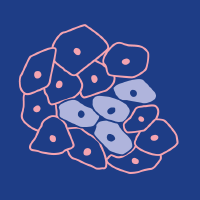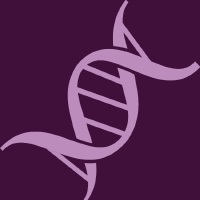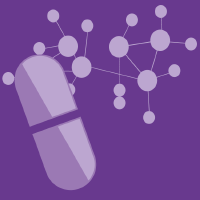Topic Menu
► Topic MenuTopic Editors



Pharmacogenetics: A Tool in Cancer Therapy
Topic Information
Dear Colleagues,
Over the past years, the availability of high-throughput technologies has led to an important change in pharmacogenetics, improving the practice of precision medicine. The tumour genetic landscape influences treatment response in cancer patients. Multiple molecular mechanisms of resistance to therapies in solid or hematologic tumours have been discussed, highlighting the degree of tumours’ heterogeneity. Multiple approaches, using liquid biopsies, circulating tumour cells and tissue biopsies, can be helpful to monitor patients during therapy and understand drug resistance mechanisms. This knowledge has paved the way for the development of personalized medicine aimed at providing better clinical and therapeutic approaches. To this end, there is an urgent need for the identification of predictive biomarkers of response/resistance to treatments and toxicity, including new tools for genome analysis for the development of personalized medicine. We are pleased to invite you to contribute to our Topic entitled “Pharmacogenetics: A Tool in Cancer Therapy” aimed to collect contributions on the potential role of Pharmacogenetics in cancer treatment, also highlighting the strength as well as its limits in clinical translation. This Topic aims to investigate the different pharmacogenetics approaches useful to identify potential biomarkers in cancer therapy. In this Topic, original research articles and reviews are welcome.
Research areas may include (but are not limited to) the following:
- Genetic variability related to drug toxicity and efficacy in cancer;
- Genomic and proteomic profiling in cancer;
- ncRNA profiles to predict prognosis and outcome in cancer;
- Liquid biopsy in cancer;
- Methylation profiles to predict cancer prognosis and outcome;
- Multi-omics approaches to the study of cancer treatment response;
- Epigenetic changes as determinants of drug response and resistance in cancer;
- Novel genomic targets for drug development.
I/We look forward to receiving your contributions.
Dr. Stefania Crucitta
Dr. Gloria Ravegnini
Dr. Rossana Roncato
Topic Editors
Keywords
- pharmacogenetics
- pharmacogenomics
- target therapy
- cancer therapy
- personalised medicine
- solid tumour
- haematologic tumour
- liquid biopsy
- treatment toxicity
Participating Journals
| Journal Name | Impact Factor | CiteScore | Launched Year | First Decision (median) | APC |
|---|---|---|---|---|---|

Cancers
|
5.2 | 7.4 | 2009 | 17.9 Days | CHF 2900 |

International Journal of Molecular Sciences
|
5.6 | 7.8 | 2000 | 16.3 Days | CHF 2900 |

Journal of Personalized Medicine
|
3.4 | 2.6 | 2011 | 17.8 Days | CHF 2600 |

Onco
|
- | - | 2021 | 18.3 Days | CHF 1000 |

Pharmaceuticals
|
4.6 | 4.7 | 2004 | 14.6 Days | CHF 2900 |

MDPI Topics is cooperating with Preprints.org and has built a direct connection between MDPI journals and Preprints.org. Authors are encouraged to enjoy the benefits by posting a preprint at Preprints.org prior to publication:
- Immediately share your ideas ahead of publication and establish your research priority;
- Protect your idea from being stolen with this time-stamped preprint article;
- Enhance the exposure and impact of your research;
- Receive feedback from your peers in advance;
- Have it indexed in Web of Science (Preprint Citation Index), Google Scholar, Crossref, SHARE, PrePubMed, Scilit and Europe PMC.

